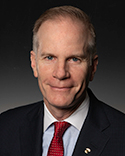On May 22, 2025, in a significant and much-anticipated white-collar case, Kousisis, et al. v. United States, the U.S. Supreme Court, in a 9-0 opinion authored by Justice Amy Coney Barrett, held that a defendant who induces a victim to enter into a transaction under materially false pretenses may be convicted of federal fraud even if the defendant did not seek to cause the victim any net economic loss. In other words, if the defendant obtained money or property as a result of a fraudulently induced transaction, that’s enough for a federal fraud conviction—even if the victim received the full economic benefit of the bargain.
Factual Background
I oversaw this case during my time as U.S. Attorney for the Eastern District of Pennsylvania during the first Trump administration. The case arose from federally funded projects to repair two Philadelphia landmarks, the Girard Point Bridge and 30th Street Station. Alpha Painting and Construction Co. and its manager, Stamatios Kousisis, bid for and won two painting contracts, totaling over $80 million. The contracts required the participation of a “disadvantaged business enterprise”—usually a minority- or female-owned business—and Alpha represented that it would obtain its materials from such a supplier.
Alpha then broke this promise, using a disadvantaged supplier purely as a pass-through entity, and submitted false certifications to hide the scheme. Ultimately, the painting and repair work satisfied the contractor, who paid for the work but did not know about the lies regarding the fake participation of the disadvantaged business.
Getting What You Paid For
Much has been written about the Kousisis decision already, often remarking on the supposedly surprising result given that, unlike some other recent Court decisions, the Kousisis Court declined to further narrow the scope of the federal wire fraud statute. But the result was not surprising to me.
As an initial matter, it is always perilous to lie or deceive when dealing with the federal government. And it is particularly perilous when there are large sums of money exchanging hands, which tends to heighten the scrutiny.
I believed then as U.S. Attorney, and I believe now, that the case stood for the commonsense proposition that the federal government has the right to get what it paid for. That right includes who will provide the services and not just the services themselves. As Justice Sonia Sotomayor put it in her concurrence, a Yankees fan tricked into buying Mets tickets is no less defrauded simply because the Mets tickets might have the same economic value as the Yankees ones. That the Court’s decision was unanimous tends to underscore my original understanding of the case.
Future Implications for Federal White-Collar Enforcement
Some of the future implications of the decision are specific to the federal write fraud statute and fairly obvious. For example, the decision may—and probably will—embolden federal prosecutors to bring more cases involving a fraudulent inducement theory than previously now that the Court has essentially green-lighted such prosecutions even when there is no net economic loss.
The limiting principle to such prosecutions will often be what the Court described as the “demanding materiality requirement,” which should narrow the universe of actionable misrepresentations. In short, the “get what you pay for” principle of the case is not absolute. Only material misrepresentations can lead to a federal fraud conviction. Because the defendants here did not contest that their misrepresentations were material, however, the Court did not “settle the debate” over the precise contours of materiality. That will be left to future cases. In the meantime, potential defendants must tread carefully in an unsettled area of the law.
The most interesting takeaway from Kousisis, in my view, is that it is a reminder of the broad discretion that U.S. Attorneys have to determine what types of cases their offices will prosecute. That discretion existed in the first Trump administration, and I believe it will exist in a meaningful way with U.S. Attorneys appointed in the second one, as well. I pursued the Kousisis prosecution because, to me, it was a case about the defendants lying to obtain tens of millions of dollars and, as noted above, it stood for the proposition that the government should get what it paid for. Thus, it was an important part of my office’s agenda to prosecute and deter white-collar crime.
But an outside observer might also see the case as one promoting “DEI” (diversity, equity and inclusion) by enforcing the disadvantaged business requirement of some federal grants and contracting. The current administration has publicly and forcefully adopted the view that such programs or requirements function as a racial and gender spoils system for minorities and thus are a form of illegal discrimination. And yet the current administration defended the conviction in the Supreme Court—and won.
Considered from that perspective, Kousisis suggests that white-collar enforcement—or at least the threat of white-collar enforcement—will be alive and well under the current administration. This is because Trump-appointed U.S. Attorneys themselves will, to a certain extent, be setting the agendas and priorities for their respective offices.
Moreover, as a practical matter, it is impossible for Washington to micro-manage the 94 U.S. Attorneys’ offices around the country and the myriad investigations and cases that they pursue. Thus, even in those areas where it may appear, based on public statements, that the administration is deemphasizing enforcement, businesses and individuals must be vigilant not to run afoul of federal law. This also highlights the critical importance of consulting with competent, experienced white-collar counsel that has its finger on the pulse not only of Washington, but also of your local federal jurisdiction.
William M. McSwain is co-chair of Duane Morris’ White-Collar Criminal Defense, Corporate Investigations and Regulatory Compliance Group. He served as the U.S. Attorney for the Eastern District of Pennsylvania from 2018 to 2021.








